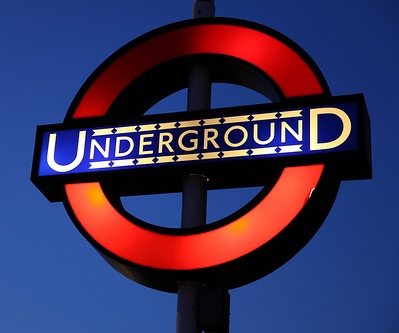
So while we’re on the topic…what is Underground anyway?
Is it a genre? A description of an artist’s commercial status? A reflection of whether you’re signed to a major label? All of the above? Neither? People use the term all the time. “I like underground rap.” “They’re too underground, they’ll never sell.” “Let’s keep it on the underground tip…” We seem to have an intuitive understanding but are we really speaking the same language?
I think the most common definition is an artist that has not yet gained mainstream attention. Most would probably say artists like Stalley, Nottz, 1982 and Black Milk are underground. They may have a buzz among crate diggers (er…um…avid blog readers) but the casual fan who looks to the radio for new music is not likely going to know them. But is that really the definition of underground? If an artist you never heard of dropped a super catchy song on a mixtape with a verse by a well-known singer (kinda like this one) would that rapper still be considered underground? My guess is the initial reaction of most people who heard Successful by Drake the first time was not “Wow. What a cool underground track.” People might have looked to him as being someone who was on the come up but his sound was not underground. It was very mainstream (and I’m not mad at that–no judgments here about 1 style being superior to the other).
So…does that mean that underground is really about the sound of the music? Let’s break down the sonic elements of tracks often considered to be underground. Typically, the songs tend to be fairly lyric-heavy and the beats are a little more down and dirty. The hooks are typically not sung and, if they are, they are not done by a polished R&B singer. Overall, the songs tend to be fairly complex and may not be as instantly appealing as more poppy songs. Does that mean underground is defined by complex lyricism, subject matter and beats? Not necessarily. There are some cats out there who have super-complex lyrics and beats, that are far from top 40 material, who are among the most commercially successful hip-hop artists of all time. No one would consider Eminem or Kanye West to be underground, yet if the only songs of theirs a person had ever heard were On Fire and So Appalled, respectively, it would be very hard to convince that person that Em and Ye weren’t anything other than backpack rappers. But, clearly, they are not…or are they?
I think the answer lies right around what we talked about above. The term “underground” is relative. What do I mean by that? I think here is no static definition of “underground.” It is not a sound or rhyme style or way of dress or any other characteristic that is fixed. Instead, the genre is defined by what happens to be considered mainstream or normal at the time. Underground rap, like alternative rock, is rap that is (not yet) appealing to the masses either due to timing or by design. Let’s use 50 Cent to illustrate these points. Back in 2002 when 50 Cent released 50 Cent is the Future (ironic title given this point) he had virtually the same sing-songy yet menacing rhyme style that he has today. He rapped about similar subjects, sang his own hooks and spit on sparse and spooky beats. For more than a year, he was KILLING the underground. A year later, when he released Get Rich or Die Tryin’, his first studio album, he became as mainstream as any rapper has ever been, selling more than 12 million albums worldwide. His style and material didn’t change during that time. With the exception of a couple of more polished singles like In Da Club and 21 Questions, all the elements that made 50 an underground sensation remained in tact. What changed was over time the world began to learn his story and his music and they became normalized. At that point 50 Cent (the person) ceased being underground with the main change being time passed.
But that’s an important distinction. 50 Cent the person stopped being underground but much of his music remained squarely aimed at the underground (or more precisely the streets). Songs like Wanksta and Many Men were on his mixtapes but also made his album because he needed to maintain some continuity and credibility with his underground fans. 8 years and 4 albums later, every 50 Cent album still has a combination of pop records and records aimed at the streets (or below them). The same goes for Eminem, Jay-Z and the vast majority of today’s rappers. Kanye West broke the mold by making an incredibly dense conceptual album with complex beats that were anything but pop music. He may My Beautiful Dark Twisted Fantasy with disregard for the mainstream and (at least by this definition) it will go down as a classic underground album (anyone other than Kanye would have sold less than 50,000 copies and the album would have been legendary among hip-hop’s inner circles).
I think in a perfect hip-hop world we need mainstream and underground. Sometimes we don’t want to have to work too hard to be entertained. We want simple beats and catch melodies. Other times, we want to be stretched and find new boundaries. Sometimes that leads to rewards and other times it just leads to fatigue. Regardless, at the very least, it gives us more appreciation of the contrast between underground and mainstream. Again, no judgments…but tonight we’re keeping it strictly underground!
Let me know your thoughts on what underground means to you.